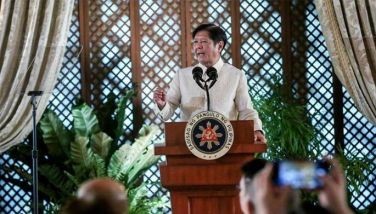ASEAN CEOs discuss solutions to regional economic integration
SINGAPORE – Captains of industry from the ASEAN region gathered in Singapore Friday at the inaugural of Network ASEAN Forum (NAF) to discuss issues that continue to stand in the way of the formation of an integrated ASEAN Economic Community by 2015.
Participants were unanimous in noting the near limitless potential of ASEAN as a key global trade and production base, while agreeing that much work remains to be done in ensuring seamless integration.
Singapore’s Deputy Prime Minister and Finance Minister Tharman Shanmugaratnam, who delivered the NAF opener, echoed these sentiments in his speech.
“I’m optimistic because we know what the weaknesses are, and their solutions; because we have a valuable asset in our openness and ability to cooperate and collaborate with each other as a region; and because of proactive private sector efforts such as the NAF that seek to work alongside ASEAN governments to realise our vision of an ASEAN Community,†he said.
Central to the forum are the sector-based ‘Lifting the Barriers’ roundtable sessions. These roundtable sessions saw participants discussing issues specific to six key sectors: Aviation; connectivity; infrastructure, power and utilities (IPU); capital markets; financial services; and healthcare.
Universal themes from the three morning sessions roundtables, aviation; connectivity; IPU; emerged including the need for ASEAN-wide regulations, better communication and cooperation between key industry players and the abolition of protectionist policies.
Speaking at the aviation roundtable session, AirAsia Group CEO and 2013 NAF convener Tony Fernandes said the secretariat needed more “meat and muscleâ€.
“I would like to see the ASEAN Secretary General having greater power and influence on the economic direction so that we can channel our regional proposals to one body, which will then disseminate them to the different ASEAN governments,†he added.
Fernandes’ comments were reflective of the current state of the ASEAN market which remains a largely fragmented region comprising a hodgepodge of local regulations and standards. The lack of a single ASEAN regulator in any industry and the proliferation of non-binding agreements have also played a role in preventing greater collaboration.
“We have identified a number of barriers to integration which include the lack of transparency, issues of nationalism in investment, and issues of changing goalposts,†said CEO of Ayala Corp. CEO and IPU roundtable chairman Jaime Augusto Zobel de Ayala.
Meanwhile, Indosat CEO and the chairman for the connectivity roundtable Alexander Rusli said there was a need to view ASEAN as a “single unit of businessâ€.
“We need to build an ecosystem through the ASEAN spirit with one set of standards defined across the board,†he said.
“The end game has to be that [in the case of connectivity] wherever we bring our devices, charges have to be transparent and the user experience must be seamless. Otherwise, people will find other modes of communication,†he added.
NAF participants attended three more roundtable sessions focused on capital markets, financial services and healthcare in the afternoon.
The outcome of these six roundtable discussions will be reflected in policy recommendations which will be published and presented to the policymakers.
The NAF is an event hosted by the CIMB ASEAN Research Institute (CARI), a public organization committed to the development of the ASEAN Economic Community. CARI is also the secretariat of the ASEAN Business Club, a coalition of private sector players committed to the ASEAN agenda.
- Latest
- Trending































